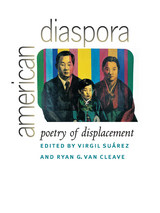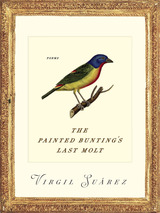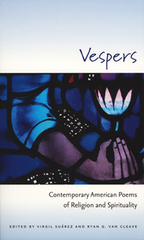
Ninety miles separate Cuba and Key West, Florida. Crossing that distance, thousands of Cubans have lost their lives. For Cuban American poet Virgil Suárez, that expanse of ocean represents the state of exile, which he has imaginatively bridged in over two decades of compelling poetry.
"Whatever isn't voiced in time drowns," Suárez writes in "River Fable," and the urgency to articulate the complex yearnings of the displaced marks all the poems collected here. 90 Miles contains the best work from Suárez's six previous collections: You Come Singing, Garabato, In the Republic of Longing, Palm Crows, Banyan, and Guide to the Blue Tongue, as well as important new poems.
At once meditative, confessional, and political, Suárez's work displays the refracted nature of a life of exile spent in Cuba, Spain, and the United States. Connected through memory and desire, Caribbean palms wave over American junk mail. Cuban mangos rot on Miami hospital trays. William Shakespeare visits Havana. And the ones who left Cuba plant trees of reconciliation with the ones who stayed.
Courageously prolific, Virgil Suárez is one of the most important Latino writers of his generation.

Diaspora constitutes a powerful descriptor for the modern condition of the contemporary poet, the spokesperson for the psyche of America. The poems in American Diaspora: Poetry of Displacement focus on the struggles and pleasures of creating a home-physical and mental-out of displacement, exile, migration, and alienation.
To fully explore the concept of diaspora, the editors have broadened the scope of their definition to include not only the physical act of moving and immigration but also the spiritual and emotional dislocations that can occur-as for Emily Dickinson and other poets-even in a life spent entirely in one location.
v

Moon Decima
If it were the Eucharist, it’d be hard to swallow,
this moon of lost impressions, a boy in deep water,
something tickling his skin. This memory of weight-
lessness—a kite that somehow still manages to hover
in the dog mouth blackness of sky. This is a cut out
moon of lost children, or is it a savior’s moon?
This boy will float on home, or be swallowed
by the water. Above the pines and mangroves,
this moon hangs unrelenting. Is it the one eye
of an indifferent God that remains open just so?

At the heart of human existence lie fundamental questions that are pondered by philosophers, theologians, poets and thoughtful people from all walks of life. What is the meaning of life? Who or what is a divine being? How can a benevolent deity justify human suffering? Such questions are especially relevant to our lives in the current climate of American society. In Vespers: American Poems of Religion and Spirituality, editors Virgil Suárez and Ryan G. Van Cleave offer the reading world a timely anthology of powerful and passionate poems that cut to the heart of our contemporary theological and spiritual underpinnings.
Featuring fifty of today's most respected American poets, including Pulitzer Prize winners Stephen Dunn and Carolyn Kizer, Vespers allows us to witness and understand the challenging ideas and philosophies surrounding religion and spirituality. Through these poems, we can come to a better understanding of who, what, and why we are.
From deathbed spirituals to initiation songs, transformative ballads to transcendent sonnets, poets of myriad backgrounds—Native American, African American, Asian American, Latino, Protestant, Buddhist, Catholic, Jewish—echo the thoughts, concerns, and fears that linger in our souls. Their poems help us realize that we are not alone, that we're never truly alone, that even in the face of darkness the world is vibrant, beautiful, joyous.
More than a creative exploration of theological concerns—Vespers is a roadmap of where we've been, where we are, and where we are heading in terms of our spiritual and religious existence. It will keep you company, good company, whatever your religious or spiritual background.
READERS
Browse our collection.
PUBLISHERS
See BiblioVault's publisher services.
STUDENT SERVICES
Files for college accessibility offices.
UChicago Accessibility Resources
home | accessibility | search | about | contact us
BiblioVault ® 2001 - 2024
The University of Chicago Press









